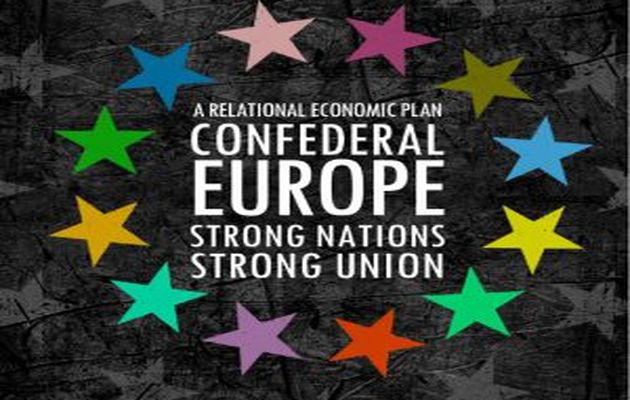Not the Last Word: Seeking a Confederal Europe
Let’s pray that Britain and her European neighbours will find a pathway for lasting reform that’s rooted in biblical revelation and wisdom.
03 AUGUST 2018 · 10:00 CET

Brexit is not the last word on Britain’s relationship with other European countries. And nor is it the only agenda on the table.
The Christian calling to love our neighbour as ourselves doesn’t stop at political, geographical or ethnic boundaries, as Jesus indicates in the parable of the Good Samaritan.
So what might it mean for us in Britain to love our European neighbours at this present time?
The outcome of the Italian elections in March shows that populist discontent is a very real challenge to the status quo in the EU. The level of dissatisfaction with Brussels and the Euro project continue to run high, and European electorates are faced with two inadequate options.
The first is the increasingly discredited vision for ‘ever closer union’ of the federalists, and the other is a populist nationalism that is deeply uncomfortable with large political or commercial organisations over which they have no control.
Is there an alternative vision to reform the EU that lies between these extremes? Two years ago Sallux commissioned our sister organisation Relational Research to set out a relational economic strategy for Europe.
Sallux is the research unit of ECPM, one of the 12 European Political Parties represented in the European Parliament. They have adopted Relational Thinking as their political strategy, drawing primarily from the framework for Christian social reform developed by Jubilee Centre, Relationships Foundation and Relational Research.
The ensuing report by David Lee, Paul Mills and Michael Schluter, Confederal Europe – Strong Nations, Strong Union, sets out a third way between federalism and nationalism. Instead of being based on an ‘ever closer union’ politically, it points to ‘ever closer relationships’ between independent states.
A confederal structure can provide a framework to allow the gradual convergence of peoples and national institutions in a slower, organic process.
The attempt to create that convergence through the rapid welding together of different political and financial structures (most notably the creation of the euro) has patently failed.
Confederal Europe sets out twenty policy proposals under different headings: political structures, international finance (to allow nations to opt out of the common currency), debt-free growth, a three-freedom single market (excluding free movement of labour), corporate governance, realism on migration and investment and welfare.
Since it was published last year, the report has been gathering more and more interest and the executive summary has been translated into five different languages.
Most significantly, it is not only the small ECPM party which is considering it, but also their partners in the third largest grouping in the European Parliament, the ECR (European Conservatives and Reformers).
The report authors are also due to train MEPs, along with their staff and researchers working with think tanks, in how to set out a relational strategy in their manifestos for the next European Parliament elections in 2019.
Prov. 29:18 states, ‘Where there is no revelation, people cast off restraint; but blessed is the one who heeds wisdom’s instruction.’ We’re convinced that the biblical vision for society, centred on righteousness (the practice of right relationships) can transform Europe if we learn how to apply it to today’s institutions and policy challenges.
No matter how Brexit pans out, let’s pray that Britain and her European neighbours will find a pathway for lasting reform that’s rooted in biblical revelation and wisdom.
Jonathan Tame, Director of the Jubilee Centre (Cambridge, UK).
This article first appeared on the Jubilee Centre website and was republished with permission.
Published in: Evangelical Focus - Jubilee Centre - Not the Last Word: Seeking a Confederal Europe
